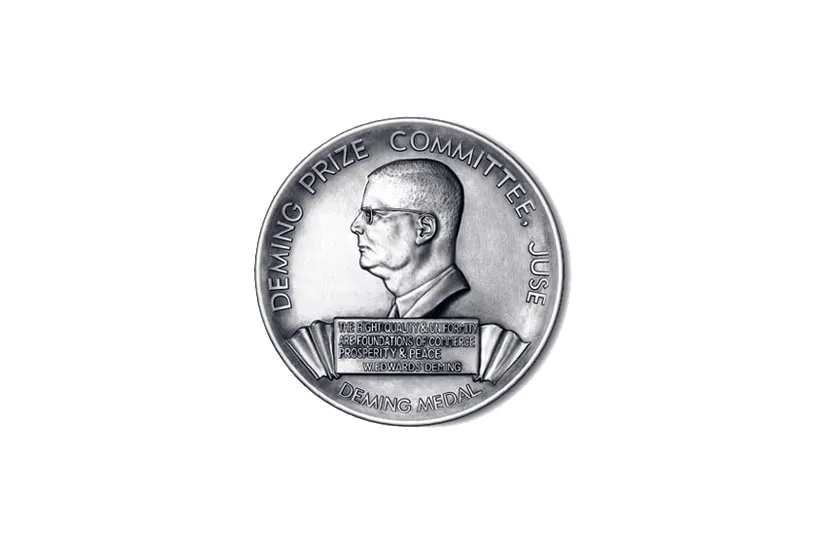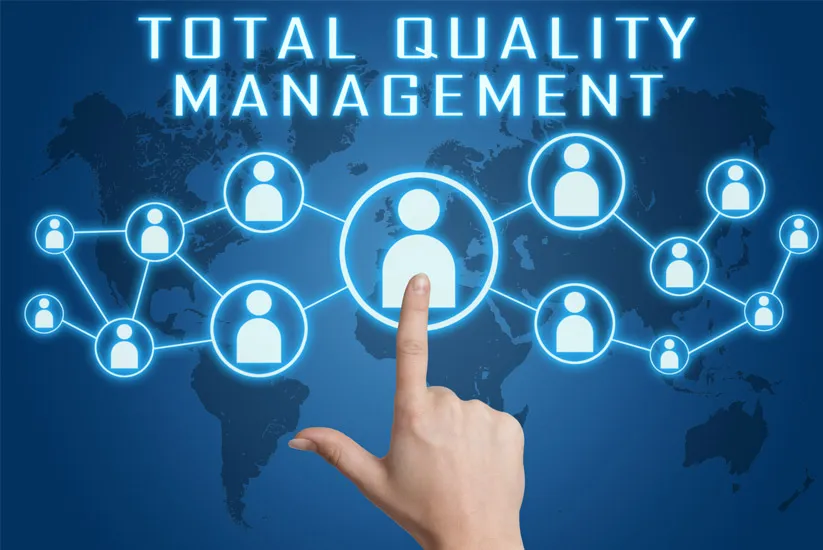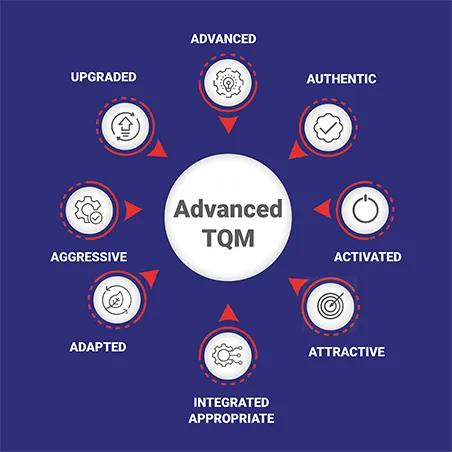
Online Advanced-TQM Program by Dr. Noriaki Kano & TQMI Team in 2021
January 11, 2021
The Future of Work in Manufacturing is Digital – Is Your Organization Prepared?
September 7, 2021What Can Organisations Gain by Challenging the Prestigious Deming Prize
When it comes to developing cutting-edge products and solutions, quality probably tops the list of priorities. Although cost and time-to-market are equally important, without quality, the success rate of the product (and the organization) is restricted. Quality has a much greater impact on the top line. As the business environment keeps evolving, organizations are constantly seeking new approaches to quality management that allow them to establish the required quality structures. The economic and social prosperity of nations has been driven by excellence in product/service quality. Since World War classic examples of nations that gained prosperity despite limited natural resources include Japan, South Korea, Taiwan, Singapore, and Hong Kong. This was achieved through exports based on quality improvement.
What is the Deming Prize?
The prestigious Deming Prize is a Japanese award that is bestowed to organizations that drive continual improvement efforts towards the development of quality control and quality management across their business. An Examination Committee examines and selects organizations for the Prize and evaluates them on the TQM practices submitted by them. If the organization passes the document examination, an onsite examination is then conducted where they are judged according to certain evaluation criteria. Since every organization is judged on several different parameters, attaining the Deming Prize is not easy. It requires the careful establishment of business objectives, deep involvement of the top leadership, suitable utilization and implementation of quality principles, and the demonstration of quantifiable effects.
Deming Prize is given to companies that set and achieve challenging proactive customer-oriented business objectives and strategies, using TQM principles, concepts, and techniques across the entire value chain.
The award focuses on Total Quality Management (TQM) and empowers organizations across the globe to understand quality-related principles, concepts, and techniques, evaluate their current level of product (or process) quality against a benchmark, and begin their own pursuit of quality management.
Established in the year 1951, the award came into existence to honor W. Edwards Deming who along with others like Joseph Juran, contributed greatly to quality control in Japan after World War II. It is his teachings that have helped Japan build its status as one of the most quality-focused countries in the world. Organizations or individuals that challenge the Deming Prize end up building new approaches to quality management that meet the needs not just of their business, but also of their customers and the markets they serve.
Benefits of challenging the Deming Prize
Organizations that challenge the Deming Prize often state the benefits they experience by establishing a strong foundation of quality management and continuous quality improvement. If you’re wondering why one needs to “challenge” the prestigious Deming Prize, here’s why: the Prize is used as a quality benchmark that empowers vying organizations to implement TQM principles, concepts, and techniques to enable substantial quality improvements.
Challenging the Prize means organizations use it as a means to bring about a cultural change across their business, with a deep focus on quality. It is the success of these organizations that inspires others to begin their own quality management journey while making everyone realize how critical quality management is to business success.
Here’s what organizations gain by challenging the prestigious Deming Prize:
-
Stabilized and improved quality: Organisations that look to be awarded the Deming Prize often begin their quality journey by understanding key quality principles, concepts, and techniques. Enhanced quality consciousness and a constant focus on quality improvements help build a culture of quality across the organization, empowering everyone to assess their current level of quality practices against a benchmark, stabilize it through the implementation of quality practices, and drive efforts towards improving them.
-
Enhanced productivity: Organisations challenging the Deming Prize work towards understanding their current quality levels and establishing their own themes and objectives to transform the quality of their processes and products. Therefore, there is a noticeable surge in productivity levels. Since everyone in the organization is working towards effective quality management, there is a significant reduction in development and design troubles, defects, and rework – which leads to a significant increase in productivity.
-
Improved alignment: Challenging the Deming Prize also enables organisations to drive better alignment across the organization. By establishing proactive customer-oriented business objectives and strategies and then ensuring every activity is in line with the set objectives, organizations can work towards a common goal of improved quality outcomes in whatever they do.
-
Reduced costs: A continuous focus on TQM also plays a huge role in reducing costs. By integrating quality deep into the DNA of product development, organizations are in a better position to detect and respond to issues and bottlenecks. Since problems are solved earlier in the development lifecycle, the high costs of resolving issues in production are completely eliminated.
-
Higher sales and profit margins: As the business landscape gets increasingly competitive, and as customers place high importance on reliability, availability, and security, high-quality products stand a better chance of widespread adoption and success. Since there is a relentless focus on the creation of new values based on a better understanding of customer and business needs and innovation of technology and business models, in the long run, this translates into higher sales as well as higher profit margins.
-
Improved customer satisfaction: In an era of constant change, the Deming Prize paves the way for the implementation of excellent quality management systems. Since quality controls are built based on specific organizational problems – and not the problems of others – there is more focus on driving customer-oriented business objectives and improving the quality of the products they develop. Continuous focus on improving and transforming quality management not only improves customer satisfaction but can also result in customer delight, as the products that are built with the highest focus on quality.
-
Enhanced market share: TQM, when driven by the entire organization, also aids in effectively and efficiently achieving company objectives and providing products and services with quality standards that meet (or even exceed) customer expectations. As more and more customers experience delight, there is a better chance of expanding market reach through excellent reviews and feedback.
-
Quicker realization of business goals: Organisations that practice the principles and techniques of TQM are also known to realize their business goals much faster – despite the existence of inflexible traditions, rigid hierarchies, and complex processes. By establishing a comprehensive system that has quality assurance at its core and disseminating quality control through the length and breadth of the business, organizations stand a better chance of bringing their business plans to successful closure and meet not just their quality objectives, but also cost, delivery, and safety objectives.
Paving the way for end-to-end TQM
As the focus on quality intensifies, awards like the Deming Prize set the foundation of robust quality management practices. Many manufacturers in India are now vying for the Deming Prize to improve the foundation of quality across their business. By establishing quality-driven objectives and strategies, they are aiming to create new value streams based on a better understanding of customer needs while constantly striving to improve the quality of products and services. Over the years, over 50 different companies in India have been awarded the Deming Prize, setting the right example for others looking to enhance quality levels.
Given the benefits the Deming Prize offers to organisations that have challenged it, it is about time to learn from the experience of others, bring about a cultural change across the business, and improve the quality and performance of your products and processes.





